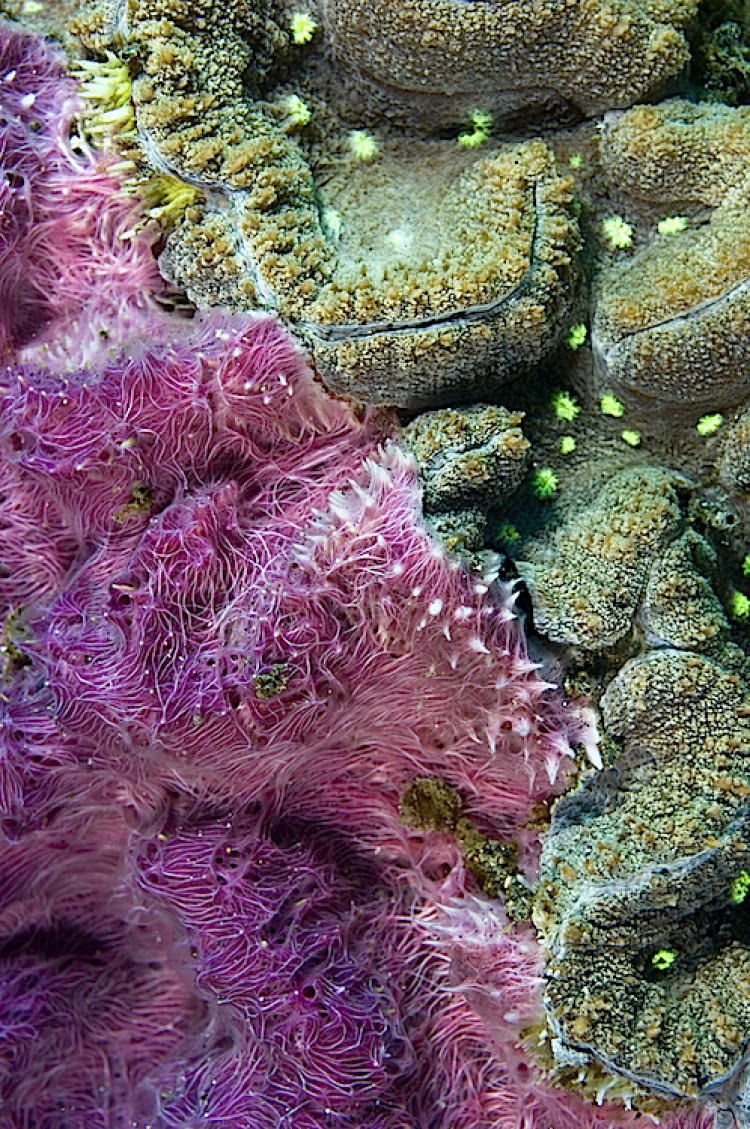In the adult phase, sponges and corals are sessile invertebrates that may compete with each other when space is at a premium.
Some encrusting sponge species, for example in the Chondrilla and Terpios genera, can overgrow corals by lateral spreading. This usually happens due to growth stimulation of the sponge and/or because the coral is already weakened by stress from factors like pollution or above average water temperatures.
However, other encrusting species, known as excavating sponges, can actually erode the matrix of corals with the potential to damage the reef structure.
This group includes clionid sponges, which can dissolve calcium-containing compounds, such as mollusk shells.
The pelagic clionid larva settles onto a surface that contains calcium where it metamorphoses into an adult sponge and bores into the substrate.
This process of bioerosion is also effective in competing against unstressed corals, but takes place more slowly.
Encrusting sponges can out-compete corals and dominate some reefs, particularly if sponge populations are not curbed by fish grazing and competition with algae. High nutrient loads can exacerbate this situation.
Matthew Oldfield is a freelance photographer based in Bali, Indonesia, specializing in editorial and documentary images from both above and below the waves. He works primarily with charities, NGO’s, and other organizations working to conserve the environment, endangered species, and disappearing cultures.
|
Please send feedback to [email protected] |






